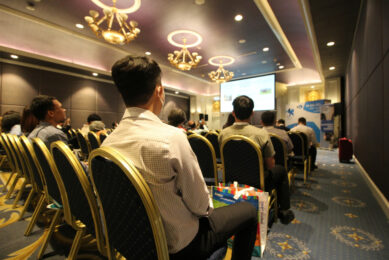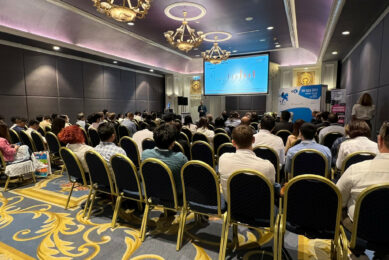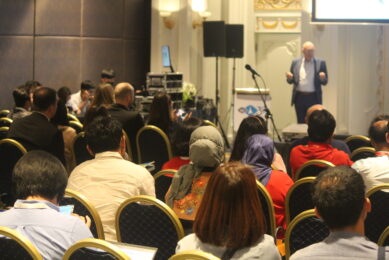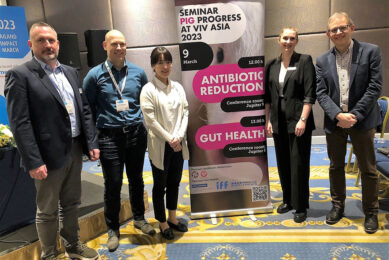On-demand: Sustainability seminar at VIV Asia 2025
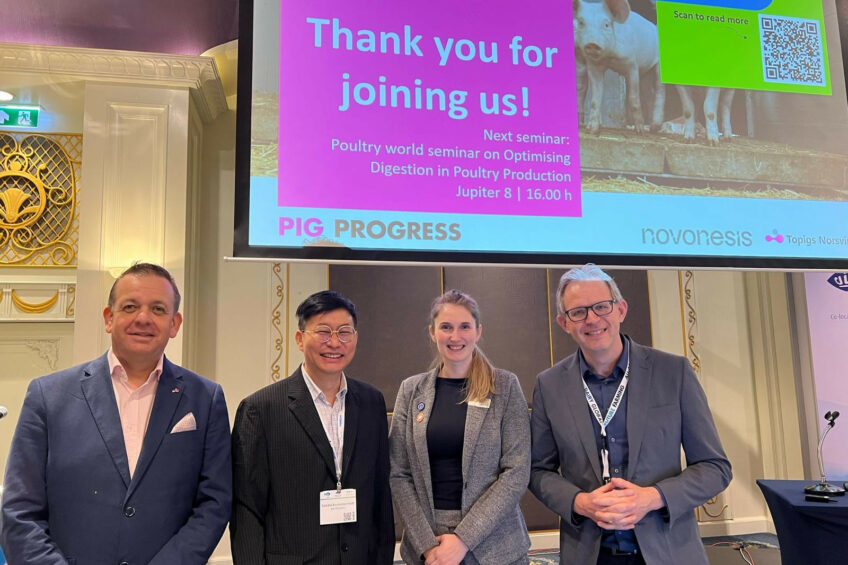
Pig Progress was present at VIV Asia in Bangkok, Thailand, with 2 well frequented seminars. “Sustainability” was the 2nd theme that was highlighted, on Thursday, March 13. This article offers a quick recap and obviously the entire seminar can be re-viewed as well.
Three expert speakers joined in for the sustainability topic in a seminar that lasted about 70 minutes. Each speaker took a different approach to “sustainability” which led to a seminar with a wide range of how to approach the topic.
Betagro’s focus on food quality and safety
How sustainability principles echo in the decisions made by Betagro, one of Thailand’s most prominent integrations, was highlighted by Sakdid Anulomsombat. He is vice president at Betagro’s corporate innovation office.
He started out by summing up sustainability areas for which Betagro has attention, like food quality and safety, sustainable packaging, occupational health and safety, community development and climate change management. The topic of “food quality and safety” he chose to highlight in more detail.
He pointed to measures like animal welfare (group housing, cage free), but also the “smart” applications in farms, like many automated and digital methods to make farming more advanced, including automatic feeding systems and digital identification.
Enzymes and micro-organisms
Next on stage was Dr Lea Hübertz Birch Hansen, on behalf of animal nutrition company Novonesis. She zoomed in on enzymes and micro-organisms as building blocks of nature. According to Dr Hansen, sustainability in pig farming comes down to “efficient resource use, animal welfare, economic viability and reduced environmental impact.”
She spent attention to the company’s range of probiotics, which can produce enzymes and in turn “can make a better use of local feed ingredients, reducing costs and lowering the environmental impact.” In addition, microbial solutions can help reduce ammonia emissions.
Genetic improvement in pigs is already sustainable
The 3rd speaker at the Sustainability seminar was Dr Grant Walling, technical business developer Asia at breeding company Topigs Norsvin. He defined “sustainable” as “able to continue over a period of time” and “causing, or made in a way that causes, little or no damage to the environment and therefore able to continue for a long time.”
Genetic improvement, he says, in itself is already sustainable. He pointed out that too much focus on an individual trait leads to unsustainable development of lines – hence he launched a plea for balanced breeding using multi-trait selection.



